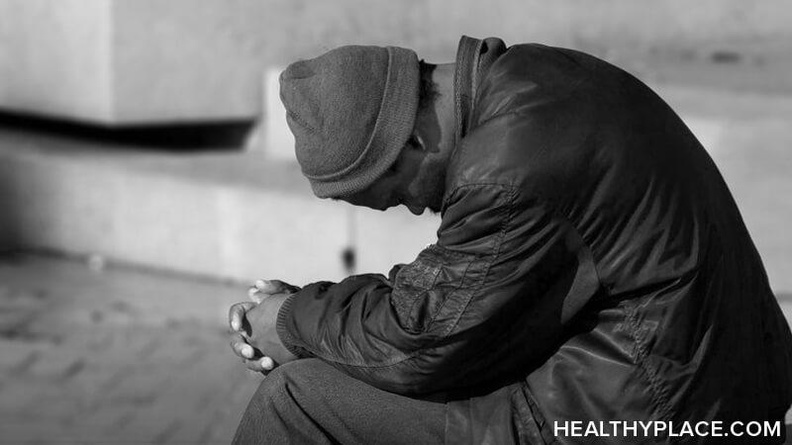The Catch-22 of Community in Mental Health Recovery

Coping with a chronic mental illness or mental health issue is a deeply personal endeavor. Yet the irony of effective treatment is one's ability to be open about this very personal struggle. Freud had a therapeutic concept called the "talking cure" which within the context psychology is a very specific type of psychotherapy. But I think if we generalize the theory and apply to our everyday lives it can also be helpful.
My Community of Mental Health Support
Community is defined differently by every individual person. When I personally think of community in relation to mental health treatment I think of my support system. This includes my treatment team (therapist and psychiatrist), local mental health support groups, friends/family and of course my wife (Where to Find Mental Health Help).
 As a man of color applying the talking cure concept to every facet of my life has been truly difficult. Here is the catch-22. To develop a community of support for recovery I have to overcome an aspect of myself (which I learned in my "original" community) of not discussing problems, issues and difficulties, especially mental health difficulties.
As a man of color applying the talking cure concept to every facet of my life has been truly difficult. Here is the catch-22. To develop a community of support for recovery I have to overcome an aspect of myself (which I learned in my "original" community) of not discussing problems, issues and difficulties, especially mental health difficulties.
I am still struggling with this. I think being aware of the tensions that exist between beliefs and practices we learned from our early communities and our newest communities and learning to use the best parts from all of them can be helpful.
APA Reference
S.
(2012, November 16). The Catch-22 of Community in Mental Health Recovery, HealthyPlace. Retrieved
on 2025, December 7 from https://www.healthyplace.com/blogs/bipolargriot/2012/11/the-catch-22-of-community-in-mental-health
Author: S.
The role and place of Community in mental health recovery is substancial and of determination importance as well. The community with its positive and negative influences exibits different effects on recovering, as long-term process, of psychiatric treatment. Anyhow, community should be the main backbone of satisfying psychiatric treatment and management of any mental illness, as well. The system of values in respective community determimes the best ways of treatment of coresponding psychiatric patients. Therefore, it ought to use the supportive and healing effects of social network on any person with mental difficulties. Such effect are for example the constructive and compasionate communication and above all the custom to respect the self-esteem of every members of respective community. Until we achieve this ideal inter-personal friendship relation it should to know that every person has its role and place in the community where it live and work. Each new member in respective community is welcomed, either it is mental health or mental ill ones. In other way, communities with more members indicates solid and excellent psychosocial milieu for both categories of people: those with mental disorders and those without its.
My church community knows about my struggles with mental illness. I really appreciate all their prayers but they due tend to shy away from me. My family of origin is no support. Too busy dealing with their own families.I have a fiance who's supportive but the stigma is here to stay. I am not my illness. Maria.
Tremendous issues here. I'm very glad to peer your post. Thank you a lot and I am taking a look ahead to contact you. Will you please drop me a mail?
Shawn,
You've really identified one of the key problems with recovery. The reluctance to discuss problems is also true of the white community in America, and especially true for white males. I can discuss issues with my best friend and his wife, and with my counselor when I'm going through a rough spot and make an appointment. At the moment I'm not depressed but am working through some issues, and my friends I can turn to are dealing with their own family problems, so it's one of those time I have to go it alone. What you wrote helps me put things into perspective, and that helps. Thanks.
Absolutely Carl. Difficulty communicating problems definitely knows no ethnic or racial boundaries. Thanks for sharing your story and I'm glad the post was helpful.